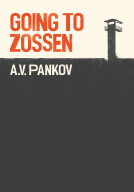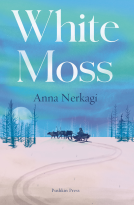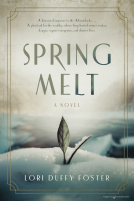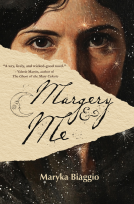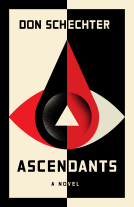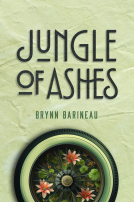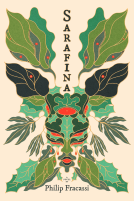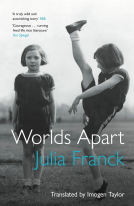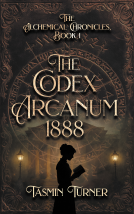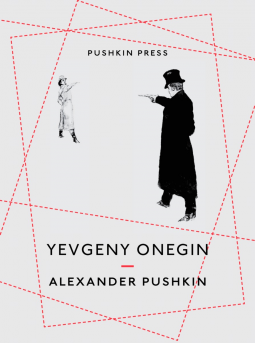
Yevgeny Onegin
by Alexander Pushkin
This title was previously available on NetGalley and is now archived.
Send NetGalley books directly to your Kindle or Kindle app
1
To read on a Kindle or Kindle app, please add kindle@netgalley.com as an approved email address to receive files in your Amazon account. Click here for step-by-step instructions.
2
Also find your Kindle email address within your Amazon account, and enter it here.
Pub Date Jul 12 2016 | Archive Date May 11 2016
Pushkin Press | Pushkin Collection
Description
Yevgeny Onegin is one of the - if not THE - greatest works of all Russian literature, and certainly the foundational text and Pushkin the foundational writer who influence all those who came after (Tolstoy, Dostoevsky, Chekhov, etc). So it's no surprise that this verse novella has drawn so many translators. It's a challenge, too, since verse is always harder to translate than prose. (Vikram Seth, rather than translating Onegin again, updated it to the 1980s in San Franciso in his The Golden Gate). A.D.P. Briggs is arguably the greatest living scholar of Pushkin, certainly in the UK, and as such he's spent a lifetime thinking about how to translate Pushkin. Briggs is an experienced and accomplished translator, not only for Pushkin (Pushkin's The Queen of Spades) but for Penguin Classics (War and Peace, The Resurrection) and others. Briggs has not only been thinking about Pushkin for decades, he's been working on this translation for nearly as long. It's a landmark event in the history of Onegin translations and this edition is accompanied by a thoughtful introduction and translator's note.
Available Editions
| EDITION | Other Format |
| ISBN | 9781782271918 |
| PRICE | $20.00 (USD) |
Average rating from 21 members
Featured Reviews
 Fran E, Reviewer
Fran E, Reviewer
Yevgeny Onegin is a discontented dandy who leaves St. Petersburg and high society behind when he inherits his uncle's country estate. He leads a superficial, unemotional existence finding true love and friendship to be unremarkable.
Onegin squanders away a true friendship with Vladimir Lensky, a poet. When deep feeling Tatyana, a neighbor, eludes to feelings of love for Onegin, he bristles. Tragically, he loses an enduring camraderie with Lensky and a chance at true happiness with Tatyana.
Yevgeny Onegin is a Russian masterpiece. Many translations exist. I applaud Anthony Briggs for his excellent translation and thoroughly researched introductory notes.
Digital copy provided by Net Galley.
 Educator 211653
Educator 211653
Thank you Net Galley. My introduction to this book. Fabulous. Entertaining and beautiful. Smooth translation. I look forward to reading other translations of this beautiful work.
 Mandy J, Reviewer
Mandy J, Reviewer
This new and excellent translation from Anthony Briggs, published by the wonderful Pushkin Press, is excellent. I have read a few translations of this classic Russian work and this is certainly one of the most readable and convincing. This edition also has a very useful introduction.
About the book generally:
Most people know that Alexander Pushkin is one of the brightest stars in the firmament of Russian literature. While he did write some prose (e.g., The Queen of Spades), poetry was his specialty, and Yevgeny Onegin is a brilliant example of a rare art form: a novel in verse. In fact, Yevgeny Onegin is often credited with revitalizing and modernizing the Russian language (at the time, the educated populace generally spoke French). It's a classic, and well worth a read.
About this particular translation:
Translating literature from one language to another is tricky under the best of circumstances, and I imagine the challenge is exponentially greater when translating poetry. As far as I can tell, this translator made a Herculean effort to preserve the rhythm, meter, and rhyme scheme of Pushkin's original, even while admitting that English offers far less scope for poetic feminine rhymes than does Russian. I thought the rhyme choices were almost entirely successful, with one extremely awkward exception: I strongly disliked "smarty/party," which unfortunately was used twice.
Thanks to the publisher for providing me with a free copy of this ebook in exchange for my honest review.
This is certainly the most readable translation of Onegin that I have met, and far better than the old Charles Johnston version. Yet... there are still jarring moment for me: Onegin being described as 'tip-top in spoken French', as 'an enlightened clever dick', the rather clunky rhyme in 'with this sad missive in his pocket / Yevgeny set off like a rocket' (did they have rockets in c.1820s Russia?). I'm not blaming the translator who has tackled this project with intelligence and wit, but I wonder how far it's possible to get a feel for this poem-novel in English. It's famous as an iconic text in Russian literature but just doesn't feel that significant in English, however readable and enjoyable it is.
Pushkin makes lots of literary allusions throughout, especially to Byron and his Don Juan, and I like the commentary of the narrator who inserts himself into the text to remind us, for example, that 'this is make-believe, dear reader', even drawing attention to the unresolved ending ('who drops his novel prematurely / biding it suddenly adieu').
So an enjoyable read that both situates itself within, and yet simultaneously deconstructs, Romantic literature: Briggs has done a tremendous job at translating Pushkin's sonnet narrative into readable English - and perhaps that's the best we can expect if we sadly don't read Russian.
 Joseph S, Reviewer
Joseph S, Reviewer
Yevgeny Onegin by Alexander Pushkin is a Russian masterpiece of literature. Pushkin was a Russian poet, playwright, and novelist of the Romantic era who is considered by many to be the greatest Russian poet and the founder of modern Russian literature. Pushkin was born into Russian nobility in Moscow.
I picked up this book because it was listed as poetry. I later asked a Russian friend about the book and she said it was magnificent, but never read it in English. It dawned on me that this is much more than just a simple translation from Russian. It is essentially a novel-length poem that must be translated. I understand the difficulty of translation but adding in meter and rhyme patterns, especially without sounding repetitive, is extremely difficult in translations. It's nearly impossible to keep the author's original meaning in the pattern he created.
Perhaps almost as brilliant as the novel itself is the explanation of the translations. The historical descriptions and efforts to treat line and rhyme translations are fascinating. One of the major problems in translating Russian poetry involves feminine rhymes. Feminine rhymes are rhyming words where the last syllable is unstressed. The Russian language is full of natural feminine rhymes, but English is not. Rhyme, chime, dime, time are all masculine rhymes. The last syllable is stressed and that creates the rhyme. This works well in English where the poems are written in iambic meter, meaning the last syllable is stressed. Feminine rhymes are words the rhyme on the last unstressed syllable, like pleasure and leisure or painted and acquainted. The last syllable is not stressed. To create this rhyme suffixes are added to words. This can create boring and repetitive rhymes in English and destroy the more commonly expected iambic meter. Feminine rhymes are important in Russian poetry and even play a role in the title. In English, the book is often translated to Eugene Onegin. But in Russian, the title Yevgeny Onegin is a small feminine poem:
Yev-ge-ny / An-ye-gin
Each word one iambic foot ending in an unstressed syllable and creating the feminine rhyme.
Pushkin also writes in the fourteen line sonnet form with a fixed rhyme scheme, adding his own minor changes to the original format. First, the initial line is shortened by a foot. Secondly, he freely switches between English and Italian sonnet formats at will. He sticks to his rules but not necessarily everyone else's rules.
This is a book where the introduction is important and informative. Many times people will pick up a book and skip over the lengthy introduction and jump into the story. Sometimes the reader catches on and other times the reader get frustrated and puts the book done. Granted, at times, introductions are boring, but here the introduction provides detailed information about the story, it’s structure, it’s translation and translation history. It acts as an appetizer for the novel. The reader will enter the novel fully informed and eager to enjoy.
 Katherine N, Reviewer
Katherine N, Reviewer
One of the first things that Briggs does, something that isn’t retained in the above Goodreads blurb, is revert to the more Russian version of “Eugene”—Yevgeny. He does this because, well, it sounds better. It has better rhythm. Try it out loud: Yev-gen-y On-e-gin. There’s a rise and fall to that. Better than Eu-gene On-e-gin. But I got the feeling from Briggs’ introduction that if the Anglicized Eugene worked better that’s what he’d have used. That’s the style of his translation and that, he argues, is the most Pushkin way of translating Yevgeny Onegin.
Pushkin is the most highly respected of Russian poets, and he is so probably because he wasn’t high and mighty about the language. Briggs points out that the original novel length poem is written in a combination of high and low Russian with a dash of French. It’s written in iambic pentameter, but Pushkin made the rhyme scheme his own, but wasn’t a slave to perfect rhyme. It’s Pushkin’s use of what works that almost gives the poem an English sensibility. This is what Briggs tries to bring out in his translation.
I’ve read other translations of Yevgeny Onegin. I have the Nabokov version, but it’s in one of the dusty boxes in my closet. I didn’t feel like digging it out, but I remember it feeling quite serious. The story *is* a bit grim, but Briggs’ light translation also makes it enjoyable. Pushkin is poking fun at the blazé, ball-going, dueling culture of Onegin’s world and is inviting us as readers to commiserate. Briggs’ translation is accessible and very readable. I recommend it.
 Meghan Rose A, Reviewer
Meghan Rose A, Reviewer
Do I need to put Spoiler Alert for a novel-in-verse originally published two hundred years ago? Because likely Spoiler Alert.
Me: So I finished Yevgeny Onegin.
Geoff: And?
Me: They still don't end up together in this translation.
Geoff: So what, you're holding out for a translation where they do?
Me: (shifty gaze) Maybe.
I've read Yevgeny Onegin before, and seen the opera (actually in the opposite order in that I saw the opera first then read the book), so I knew what was coming reading this translation. I can't really recall any issues with the translation I read fifteen years ago, not that I could tell you who was the translator of that version. This translation also seems fine (not being a student of comparative literary translations I doubt I could say much of anything intelligent contrasting such translations in any case). The stanzas rhyme (unlike Nabokov's version, not that I've read that version), so of course I've spent the last few days bouncy-bouncy-talking in iambic tetrameter as the rhythm has invaded my brain.
What may be lacking are explanatory notes. It's been a long time since my Russian literature course. I could remember some things, but others, a footnote or two would have been nice. But maybe the audience for another translation of Yevgeny Onegin are people who already know a whole lot about nineteenth century Russia and mayn't need such help. But I did. Not enough to ruin my overall enjoyment of the book/poem, but every now and then I had to stop and try to remember what something meant or put it out of my mind that I didn't know.
But Onegin -- he seemed less dickish to Tatyana in this version than I remembered, but far more dickish to Lensky. I guess that's the point, him being a superfluous cad and all. Still doesn't change the fact that I secretly hope him and Tatyana will get together at the end of the poem. Or, at least in the book/poem, Onegin throws himself to the ground wailing as he does in the operatic version I saw, at the realization of all he could have had, all that he threw away so carelessly, tearing his shirt open and crying. Instead, Onegin gets rebuffed, Tatyana stalks out, Onegin is like "Oh, okay, I guess" and then Tatyana's husband walks by The End. But that's more Pushkin's fault than Briggs', so I guess I'll let that slide.
Onegin, fall to your knees in overwrought operatic emotion. Aah, be still my heart.
Yevgeny Onegin by Alexander Pushkin, a new translation by A.D.P. Briggs went on sale July 12, 2016.
I received a copy free from Netgalley in exchange for an honest review.
 Juli R, Reviewer
Juli R, Reviewer
My first encounter with Onegin was in the form of Tchaikovsky’s famous opera at the Royal Opera House in London, years ago. It was one of my first ever operas and I was enraptured, both by the singers’ abilities and by the story which moved from comedy to tragedy and everything in between. What remained in my memory of the story, however, was the immensity of the story, its epic feel despite its straightforward story. So of course I wanted to jump into Pushkin’s beautiful novel-in-verse the first chance I got! Thanks to Pushkin Press and Netgalley for providing me with a copy of this novel in exchange for an honest review.
Written in the early 1800s, (1823-32 to be precise), Yevgeny Onegin is often considered Alexander Pushkin’s finest work. He himself is considered by many to be one of the most important authors and figures in Russian cultural history. As Briggs puts it in his Introduction: ‘He is to Russia what Dante is to Italy, Shakespeare to England and Cervantes to Spain’. Onegin is a masterpiece of intricate complexity. Rhymes seem to come naturally, flowing as simply and melodically as can be, yet a closer look reveals the skill hidden artfully behind the words. Everyone who has read a beautiful poem has felt inspired to pick up poetry themselves, and has subsequently discovered the difficulty of producing such beauty themselves. Reading Pushkin’s Onegin is a beautiful spectacle, which only Pushkin himself could have orchestrated.
Since I read a translation I cannot comment on how the novel reads in Russian, yet Pushking shows an incredible awareness of language. His novel is full of little asides, author’s comments and general observations on the beauty of women, the boredom of youth, the tragedy of friendship, etc. This makes Pushkin himself a key character in his novel, which starts with his addressing the reader and finishes with a simple farewell to the same reader. Yevgeny Onegin is a meta-narrative of the highest order. It is incredibly difficult to discuss the nature of story-telling within a story, without destroying the flow of the story. It takes skill to make a reader think and read at the same time, but Pushkin does so very well. His characters are both characters within the story and noticeable trope characters: the roguish, Byronic and almost inexcusable Onegin, the romantic and tragic poet Vladimir Lensky, and the quiet country girl Tatyana Larina. They work in his story but at the same time his novel is also an assessment of these types of characters. The critical response to Onegin himself is an example of how well Pushkin did his work: critics can't help but want to forgive Onegin, paint his as wounded and flawed but essentially good, yet the text does not necessarily give any indication to this.
The story of Yevgeny Onegin is both frivolous and tragic, sad and uplifting, revelatory and mysterious. Pushkin combines the qualities of both genres he engages in: prose and verse. Onegin is a novel in its structure and content, a story of passion and death, but flows as beautifully and musically as a poem. As such it shouldn't come as a surprise that Onegin has proven a challenge to translate. English has an advantage, when it comes to translating Onegin, since it is written in the sonnet form which works so well in English. But it has to be said that this novel in verse is uplifted by its translation. A.D.P. Briggs, one of the mot noted Pushkin scholars, not only writes a fascinating introduction to his work, his translation is beautiful. At times I forgot that I was reading Onegin in translation, so clearly did I feel and understand Pushkin's intentions and humour. I was so impressed by his translation I am currently actively searching for his other translations of Russian works.
Yevgeny Onegin has become one of my favourite foreign works. Russian literature has been shaped by Pushkin and his Onegin and after reading it for myself I can see how far their influence has reached. To fans of both prose and of Russian literature I can only say: get yourself a copy, as soon as possible.
